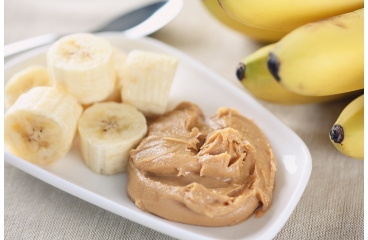Learning About Nutrition Problems During Cancer Treatment

Why can it be hard to eat during cancer treatment?
Many people have trouble eating and getting enough nutrition during cancer treatments. Your cancer treatment may include chemotherapy, radiation, surgery, or other therapies. Remember that people getting the same treatment may respond in different ways. You may have:
- Weight loss.
Many of the side effects of cancer and its treatment can lead to unwanted weight loss. If you change your diet and eating habits a little, you may be able to keep your weight up. Learn how to add calories and protein to your diet.
- Fatigue.
When you're tired, you may not feel like eating or have enough energy to eat. It's okay to rest when you need to and to eat when you feel better.
- Constipation.
Some cancer treatments and medicines you take can cause constipation. Find tips to help you manage constipation. Walking and other physical activity can help. So can drinking enough water. Using the toilet at the same time each day can also help.
- Nausea and vomiting.
These side effects can make eating unpleasant, but there are tips to help you manage nausea and vomiting. Try sipping water and other clear liquids throughout the day and munching on snacks after you start to feel better.
- Diarrhea.
- Try eating foods that are high in soluble fibre, like bananas, applesauce, potatoes (without the skin), avocado, and oatmeal. Soluble fibre absorbs water and may help with diarrhea by making stools thicker.
Eat 5 or 6 small meals and snacks instead of 2 or 3 large meals. When you feel like eating start with small amounts of food. And sip on fluids throughout the day to stay hydrated. - Loss of appetite.
This can happen if you have other symptoms like nausea or vomiting. Or it may be a side effect of the cancer itself. Find tips to manage appetite loss below. Ask your doctor about medicines to treat any eating problems you have, such as nausea or lack of appetite.
- Mouth or throat sores.
It may be hard to chew or swallow. Try to keep your mouth clean and to eat soft foods. Your doctor may suggest a special mouthwash that can help.
- Weight gain.
Some cancer treatments and medicines, including hormone therapy, can lead to weight gain. Talk to your dietitian or other healthcare provider if you are worried about your weight.
How can you manage appetite loss during cancer treatments?
When you are getting cancer treatments, you may need to try different eating habits to get the food you need.
- Try to eat more of the foods you like during the days and times when your appetite is good.
When you don't feel like eating your normal foods, try different foods than you normally eat. Mild foods may be a good choice.
Even if you don't feel like eating, try to eat foods that have protein and extra calories. These foods can help to keep up your strength, support your immune system, and prevent weight loss. Try foods high in protein such as meats, dairy, nuts, beans, and fortified soy products. Colourful fruits and vegetables are high in vitamins and nutrients that can help your body heal.
- Try nutrition drinks when you just don't feel like eating.
Use nutrition supplement drinks (such as Ensure or Boost) for more calories and protein. Or make your own high protein and calorie smoothies.
- Eat 5 or 6 small meals and snacks throughout the day.
Set a schedule for meals and snacks, and plan for times when it feels best to eat. Try to eat your main meal early.
- Stay hydrated.
What happens if you can't eat enough?
If you have a hard time eating, talk to your doctor, nurse, or dietitian. They can suggest food or diet changes. Or your doctor may suggest medicine that can help. In rare cases, you may need other ways to get nutrition, such as a feeding tube. If you need extra nutrition through a feeding tube, your dietitian will work closely with you.
Follow-up care is a key part of your treatment and safety. Be sure to make and go to all appointments, and call your doctor or nurse advice line (811 in most provinces and territories) if you are having problems. It's also a good idea to know your test results and keep a list of the medicines you take.
Where can you learn more?
Go to https://www.healthwise.net/patientEd
Enter N165 in the search box to learn more about "Learning About Nutrition Problems During Cancer Treatment".
Adaptation Date: 5/19/2022
Adapted By: Alberta Health Services
Adaptation Reviewed By: Alberta Health Services
